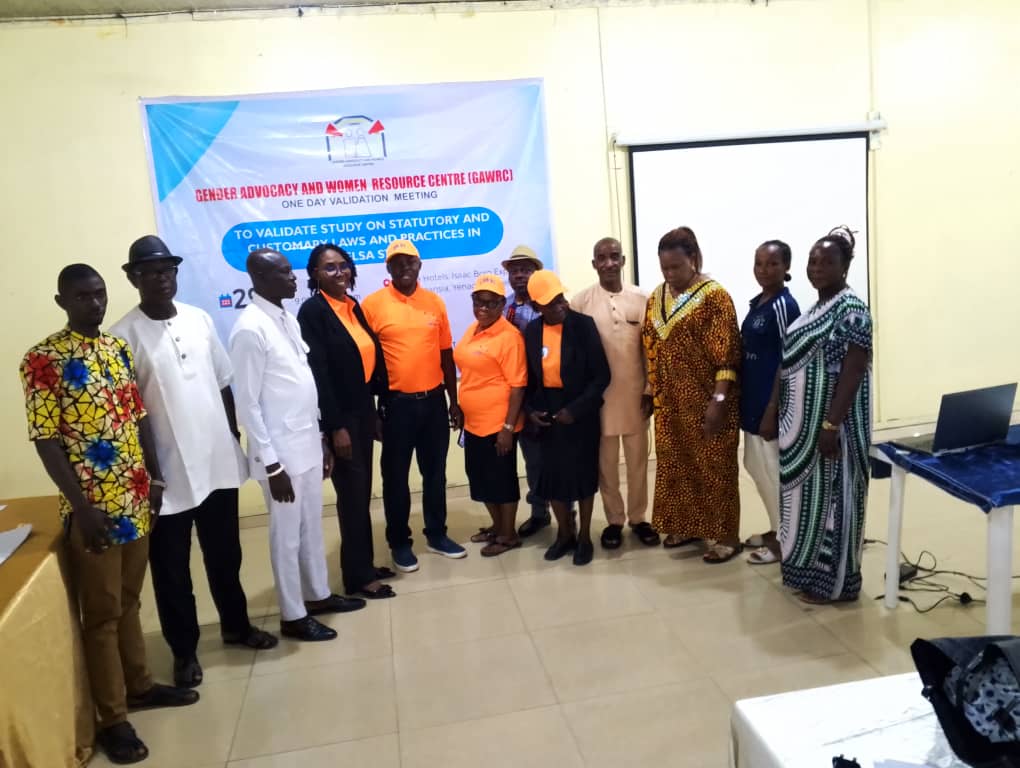A participant at a stakeholders’ meeting organized by the Gender Advocacy and Women Resource Centre (GAWRC), Ebule Tesi, has called for the total abolition of female genital mutilation (FGM), describing it as a harmful and outdated practice.
Tesi, who hails from Sabagreia community in Yenagoa Local Government Area of Bayelsa State, made the call on Thursday in Yenagoa.
He emphasized that the practice had done more harm than good and should no longer be tolerated in any part of society.
“Female genital mutilation was done in the olden days. It should be abolished entirely because it is not supposed to be done anywhere anymore,” he said.
Tesi expressed gratitude to the organizers of the programme and promised to return to his community to initiate awareness campaigns on the dangers of FGM. “With what I’ve learned here, I will meet with the Paramount Ruler and organize a town hall meeting to sensitize the people on the negative effects of female genital mutilation,” he added.
He also called on the government and non-governmental organizations to collaborate in enlightening communities about the need to eradicate harmful traditional practices.
Also speaking at the event, Gaza Taritupuleigha echoed the importance of community sensitization, pledging to educate rural dwellers on the dangers of FGM and other harmful customs. However, he disagreed with the notion that the female child should be granted equal inheritance rights as the male child, citing traditional concerns.
“I will go back and sensitize people on the need to stop female genital mutilation,” he said. “But I believe women should not be given equal inheritance with their male siblings because, in cases where a woman dies childless, her husband’s family might lay claim to her share of the inheritance.”
From the government’s perspective, Kaka Philomena of the Bayelsa State Ministry of Women Affairs said the ministry had been active in raising awareness on gender rights and the legal framework available to protect women and girls in the state.
“There are six significant laws that address gender-based violence in Bayelsa. If anyone is facing such issues, they should report to the ministry for redress,” she stated.
Earlier, the Executive Director of GAWRC, Mrs. Oti Ovrawah, said the gathering was organized to validate community-based reports on harmful practices and explore ways to address them.
“We brought community members together because of the feedback we received from their areas. We needed to confirm these findings and update our report accordingly,” Ovrawah said.
She added that a similar project was conducted in Ikorodu and Iwaya, Lagos, before the COVID-19 pandemic in 2020, aimed at identifying and preventing discriminatory practices.
“We carried out a baseline study in the South-South, and the selected communities were among those where issues like FGM and gender discrimination were prevalent. Thankfully, the communities have been very receptive to intervention,” she said.
Anthony Iyortyer, Project Director of GAWRC, provided a summary of the organization’s findings in Odi, Sabagreia, and Onuebum communities under the theme: Statutory and Customary Laws and Practices in Bayelsa State. He explained that the meeting was designed to allow community members contribute to the findings.
“At the end of the day, the community members gave their input. We will now go back, make the necessary adjustments, and finalize the report,” he said. “This project is for the benefit of the communities. They’ve spoken, and their voices will be reflected in the final document.”
At the conclusion of the meeting, participants unanimously agreed on the need to abolish female genital mutilation, end child labour and early marriage, stop the denial of widows’ inheritance rights, and ensure that girl children have equal inheritance rights as their male counterparts. They also supported ending widowhood rites that force women to remarry within the deceased’s family, and called for perpetrators of gender-based violence to be named and shamed.















